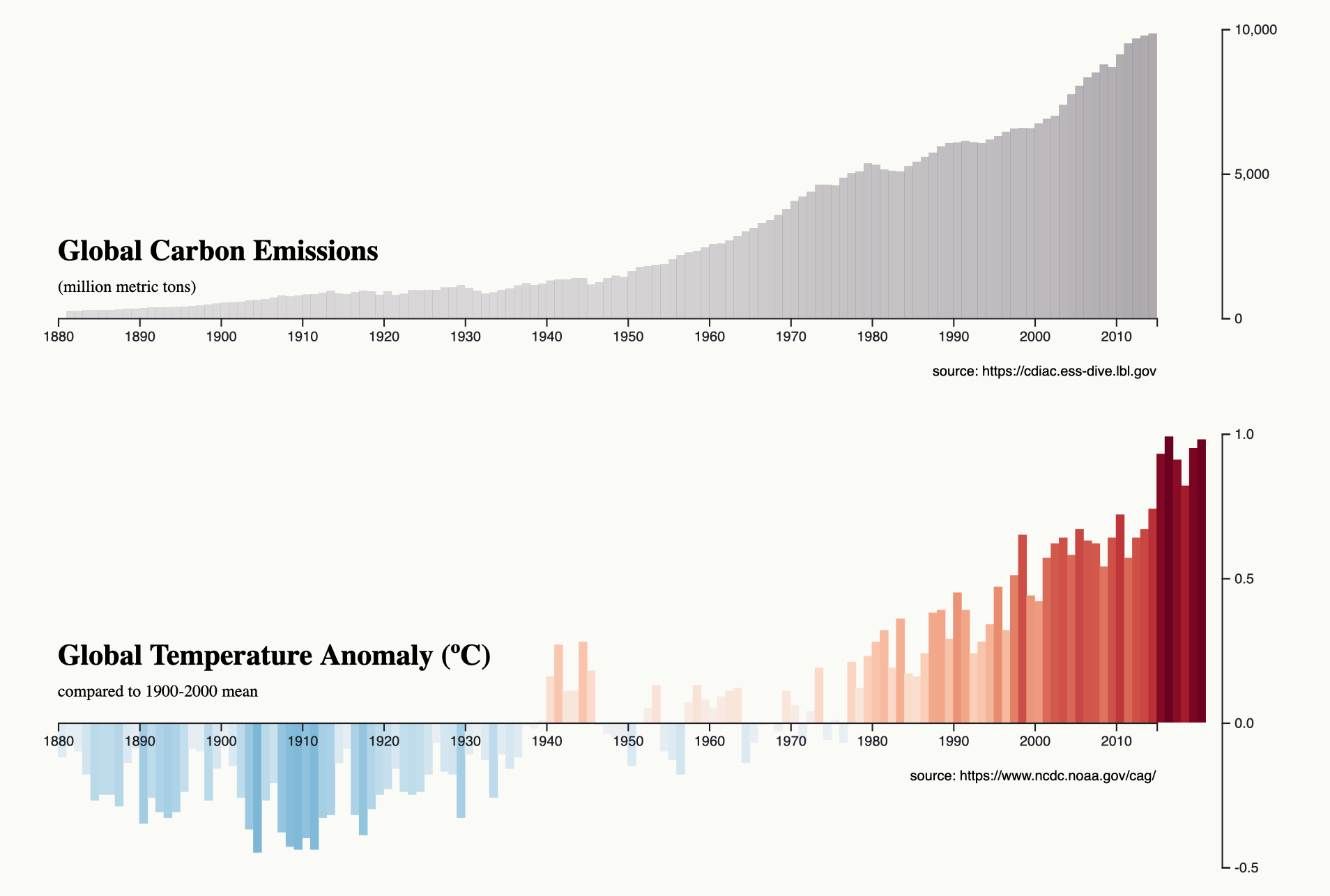Managing Climate Risks
Changes to our climate in recent decades have affected natural and human systems throughout the world. Human activities, predominantly burning fossil fuels, have resulted in elevated concentrations of carbon dioxide and other greenhouse gases in the atmosphere, especially:
- carbon dioxide (CO2)
- methane
- nitrous oxide
- fluorinated gases
Increasing amounts of these gases in the atmosphere over the last century have increased temperatures by approximately 1°C above pre-industrial levels according to the IPCC. This means a change of about 0.2°C per decade. Projections are that the rise in temperatures is accelerating.

Many of the things that we value most—our health, homes, family, and environment—will experience increasing effects of a changing climate over the next few decades. Temperature changes cause many long term effects on our environment and living patterns. These include periods of extreme heat and cold, loss of arctic ice and coastal flooding, increased frequency and severity of severe weather events, and persistent drought. In the United States, the impacts of each of these risks will differ regionally. But no community or individual will be entirely shielded from experiencing environmental change.
Location Based Risks of Climate Change
Where we live is one of the most important factors in our vulnerability and exposure to climate risks. Rising global temperatures will affect localized regions and communities in different ways.
The ClimateCheck property report can help you assess the risks specific to your residential location and determine how best to avoid or mitigate current and future risks to your home or other real estate. Our report offers a personalized look into five of the most important risks that property owners are likely to face:
- Heat: the number of extreme heat days experienced each year
- Fire: annual risk of burning events
- Precipitation: number of wet or snowy events
- Drought: water supply stress
- Flood: coastal flooding, flooding from other bodies of water, and surface water floods
- Wind: number of high wind events
Our methodology uses these five important climate change risks to calculate an overall risk rating for the future of your property until 2050. See our methodologies page for more information on how we assess each of these risks using models that track changes at the local level.
Our Shared Risk and Shared Future
Pressure on the health of our globe and natural resources due to climate change will not affect us in isolation. According to NOAA, the food, health and environmental structures that support our communities in the United States are increasingly under threat from climate change on a systemic level. Environmental stressors will result in changes to the behavior, life cycles, and geographical distribution of animals as the sea increases in acidity and temperatures near the equator become inhospitable to animal life. In turn, the effects of large-scale environmental change will affect global human health. They will cause poor air quality, heat stress, waterborne diseases, and an increase in diseases carried by insects and rodents.
Within our communities in the United States, the risks of climate change will exacerbate entrenched inequalities, especially for those living in poverty. As governments and communities adapt to climate change, individual homeowners will bear a significant individual and collective responsibility to assess and manage their home’s climate risk.
Assessing and Mitigating Your Climate Risks
Millions of properties in the United States are at risk currently and many more will soon face increased pressure from global environmental conditions and changing weather patterns. Knowing the facts can help you make a more informed decision about how to manage, sell, and buy real estate. The ClimateCheck property report will help you assess as a whole the separate but compounding effects of climate change. Understanding each risk—heat, fire, precipitation, wind, drought, and flood—is now a crucial part of property ownership.
As a property owner, you will be able to use knowledge of your risk situation to mitigate and adapt to your most pressing climate stressors. Adaptation aims to manage climate risks at an acceptable level and give you the opportunity to take steps to mitigate your future risk exposure. Potential adaptations include updating your heating and cooling systems, installing insulation, checking for and repairing cracks, and investigating your plumbing and sewer systems.
See these pages for more information on these specific climate risks and how they may impact you, your properties, and your health:
See these climate risk mitigation guides to learn how you can protect your properties:
- Flood Risk Mitigation Guide
- Storm Risk Mitigation Guide
- Heat Risk Mitigation Guide
- Drought Risk Mitigation Guide
- Wildfire Risk Mitigation Guide
Climate change is also having a significant impact on finance, investing and governance.